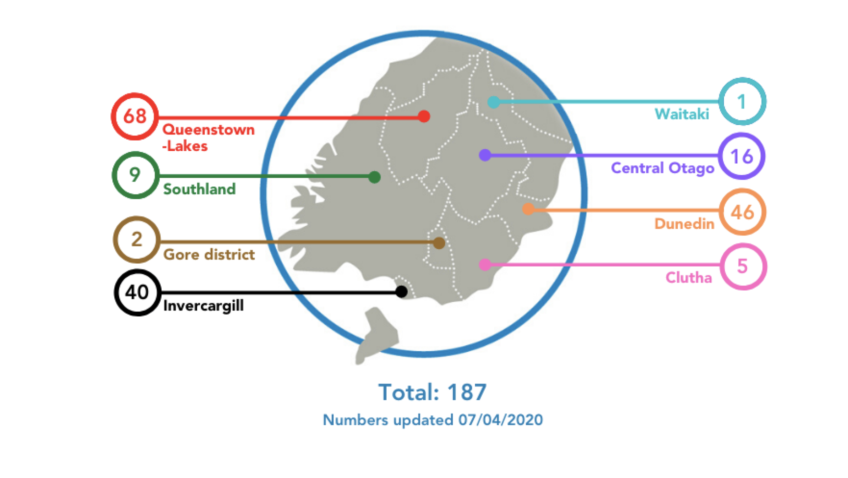
SDHB remains the area of highest increase for Covid-19
Here's today's numbers and the full Ministry of Health update. Once again, we have the highest rate of Covid-19 in New Zealand.
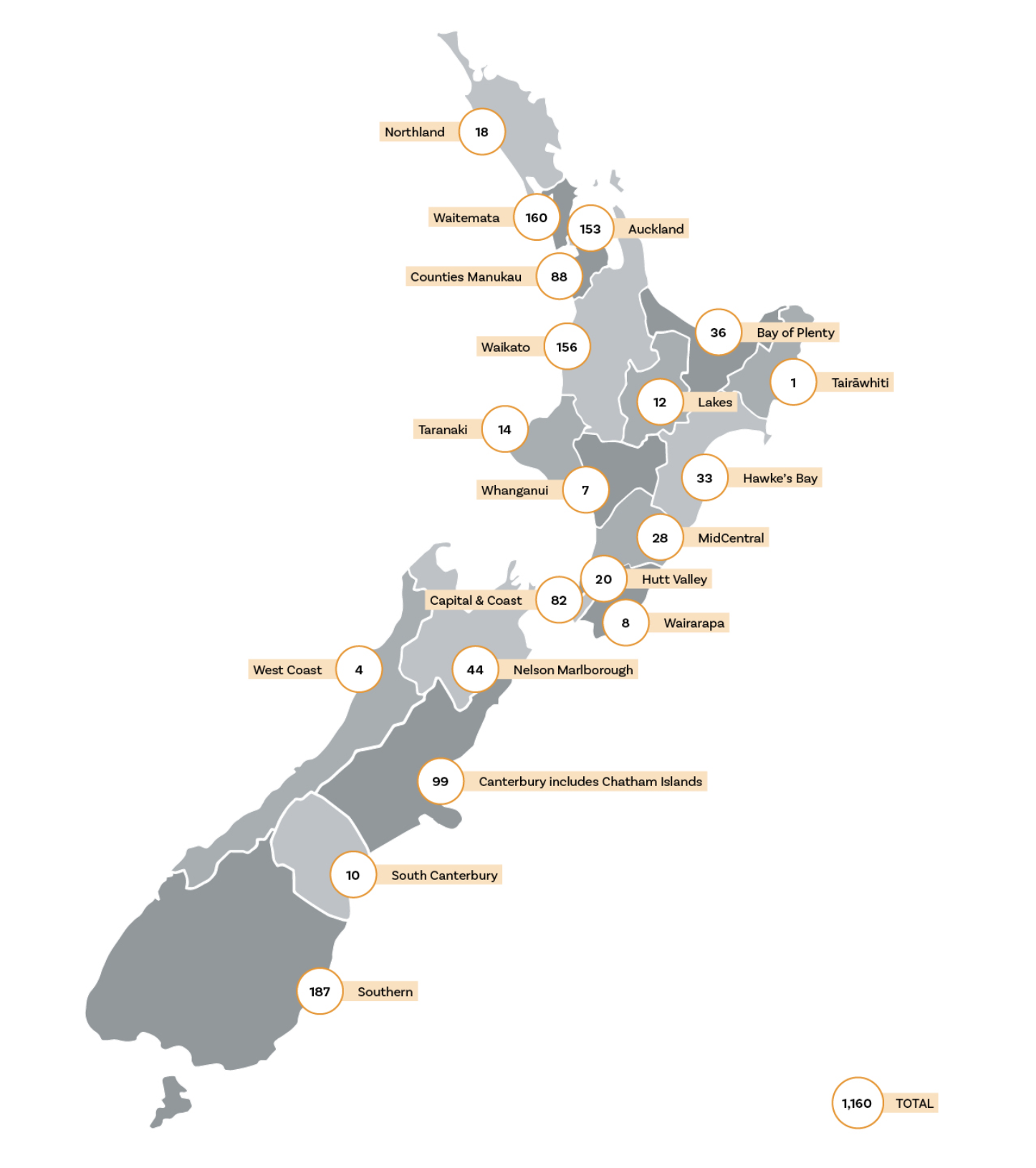
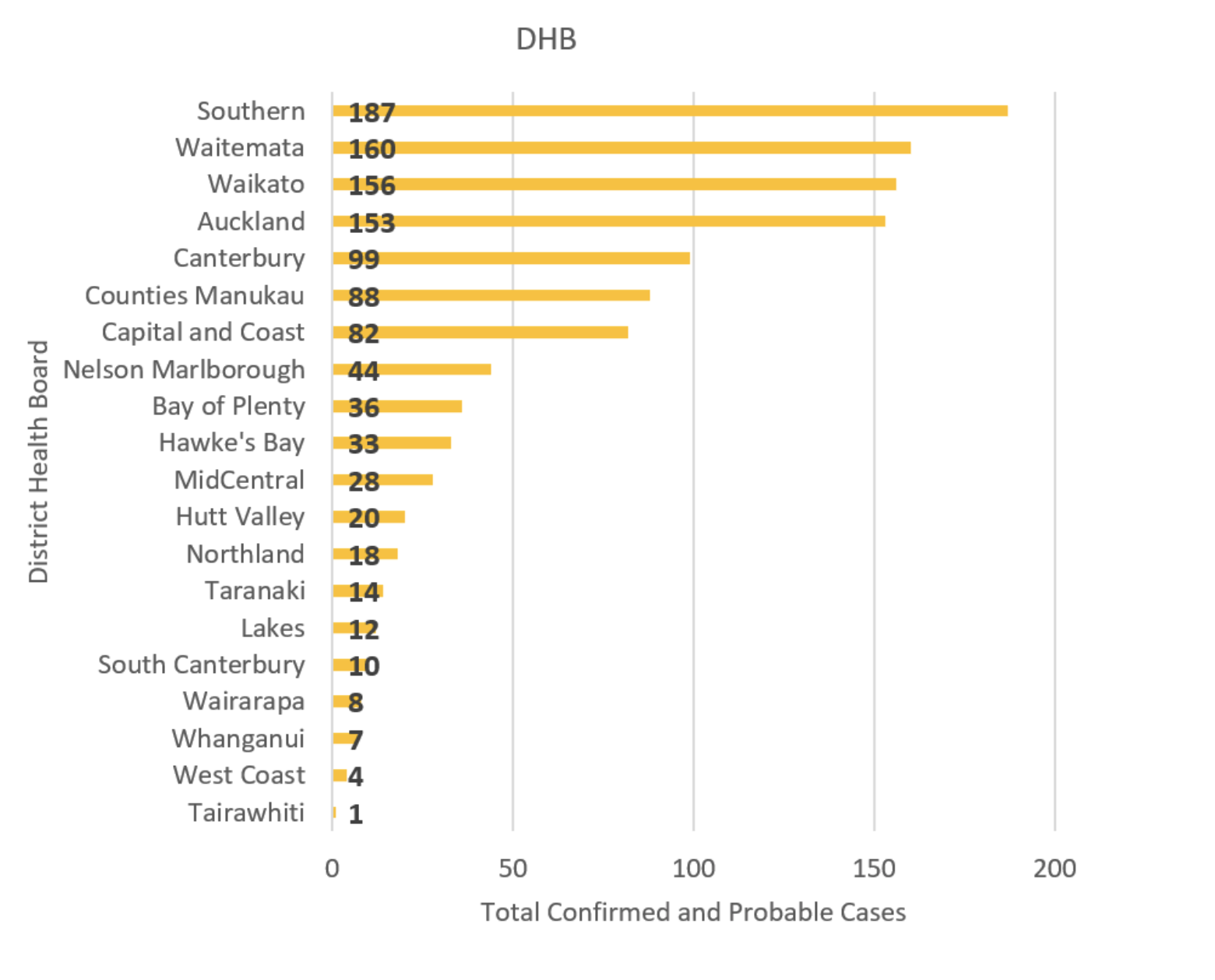
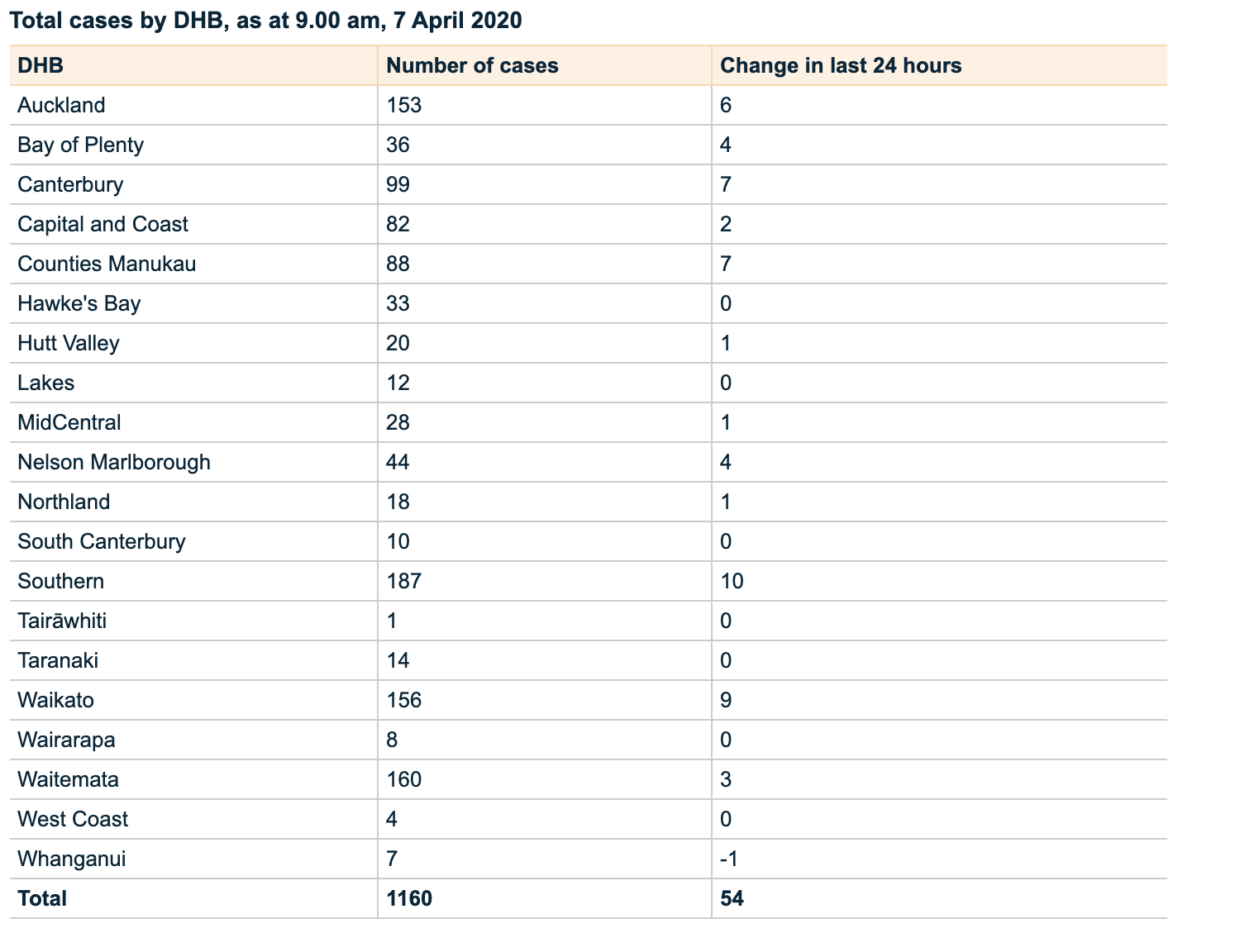
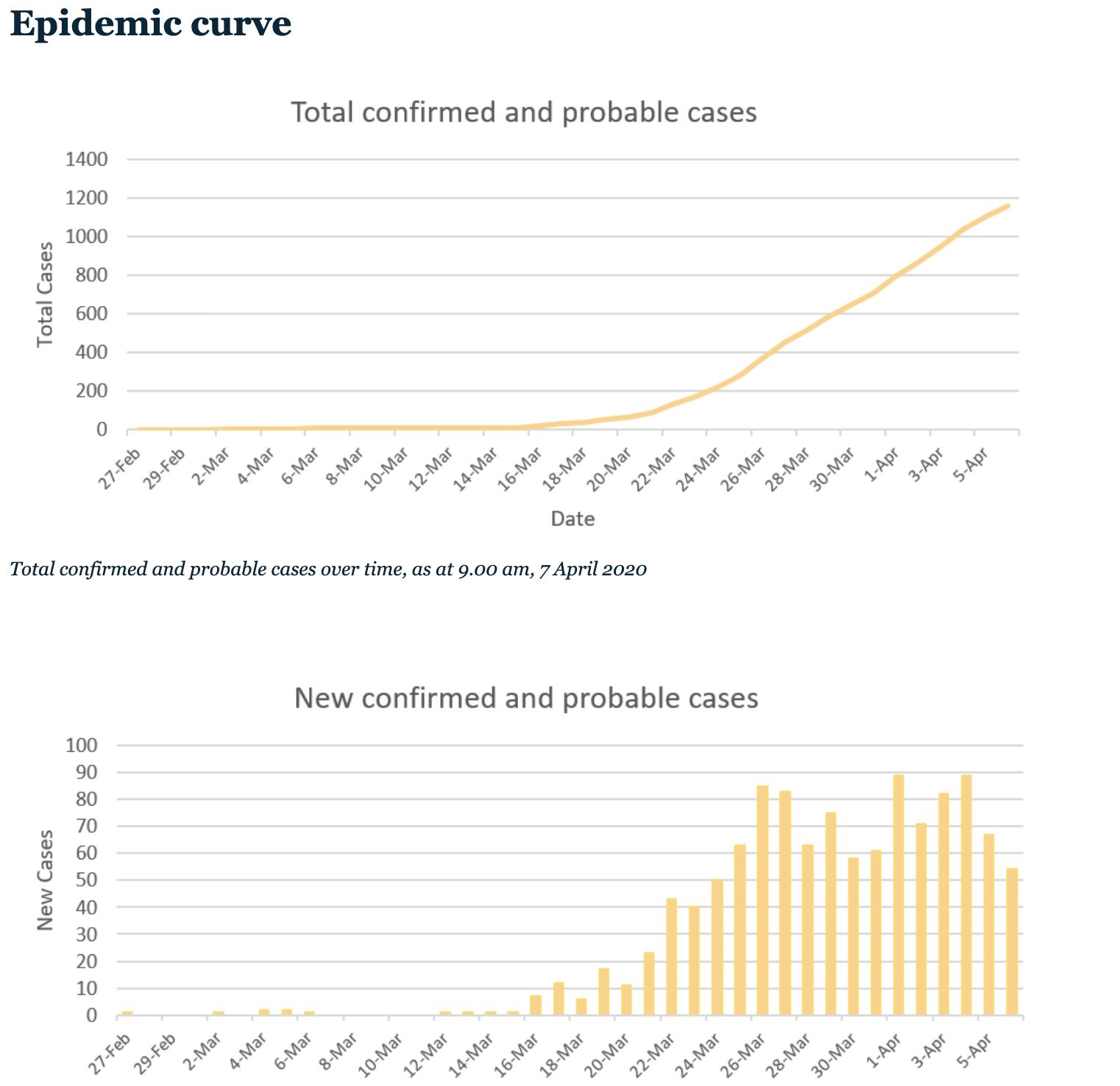
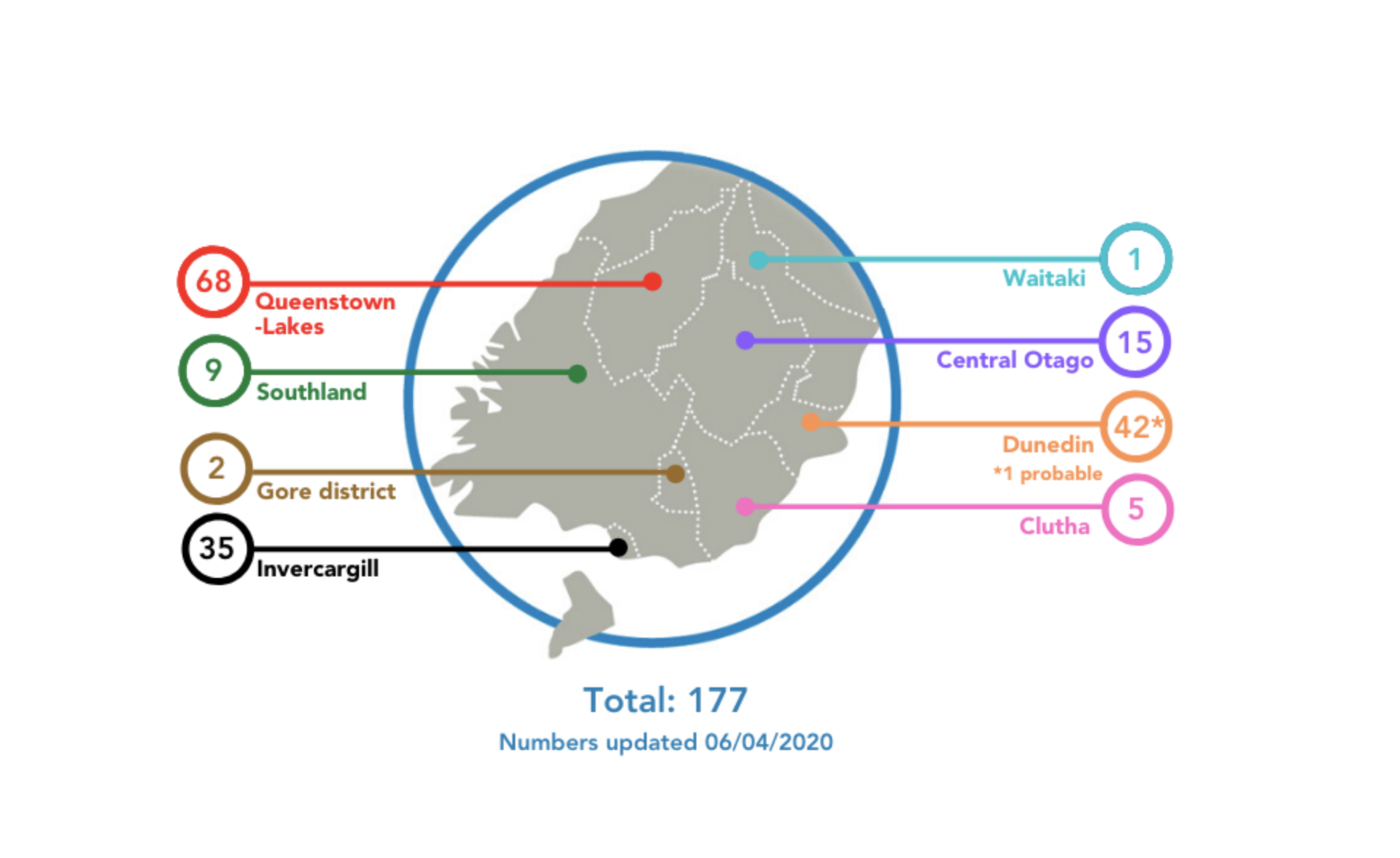
Here's the full Ministry of Health update for today.
Today there are 32 new confirmed cases of COVID-19 and 22 new probable cases. There are no additional deaths to report.
There are now 241 reported cases which we can confirm have recovered.
The combined total of confirmed and probable cases in New Zealand is 1160 – this is 54 more than yesterday.
Today there are 12 people in hospital, including 4 in ICU – 1 in Wellington, 1 in Waitemata, 1 in Counties Manukau and 1 in Southern. 1 is in a critical condition. One person has been discharged since our update yesterday.
For those cases we have information on, we are still seeing a strong link to overseas travel (42%), as well as links to confirmed cases within New Zealand (41%) including those in clusters we already know about and community transmission (2%).
The ethnicity breakdown of the confirmed cases is:
· European or other – 73.3%
· Asian – 8.5%
· Unknown – 6.9%
· Mâori – 7.8%
· Pacific peoples – 3.4%
More details are available on our Current cases page.
Testing
We continue to encourage comprehensive testing across the country.
From our lab numbers, we can report a 7 day rolling average of tests at 3063 per day.
The total of lab tests to date is 42,826 and 2908 tests were carried out yesterday.
Our test capacity continues to increase and we have supplies in stock for nearly 44,000 tests. We expect to have between 50,000 to 60,000 complete tests in stock by the end of the week.
We have 50,000 nasal swabs in stock and we are expecting 250,000 more from a local supplier within the next 3-4 weeks.
Masks
The World Health Organisation yesterday provided updated advice on mask use – particularly by the general public.
The WHO does not recommend the use of medical masks by the general public except in particular circumstances – where someone is sick and wearing a mask protects others or when someone is caring for a sick person and the mask can help protect them.
Essential Health Treatment
Under Alert Level 4 people can access essential and necessary medical care. Where needed that includes being able to travel both locally or across regions to access appropriate treatments.
A reminder too that people should continue to access healthcare services when they need them. This especially applies to people that need urgent attention.
Please follow the usual mechanisms for help – contact your GP or call for an ambulance in an emergency.
Health services continue to have capacity to provide treatment. Healthline's normal line is 0800 611 116
Please don't leave it to long to seek help. If you need medical attention for anything please seek help promptly.
Wellbeing
It’s important to remember during uncertain times that it’s alright not to be ok all the time, in fact that’s completely normal.
Everyone will be coping and reacting in different ways. It’s also important to remember that if we aren’t feeling good, there are things we can do to improve our mental wellbeing.
Today, we’ve announced the start of a range of initiatives to provide support during the COVID-19 response.
Getting Through Together is the first initiative to be launched and has been developed by All Right?, a collaboration between Canterbury DHB and the Mental Health Foundation, to provide Kiwis with a range of information and resources to help give practical advice and support during COVID-19.
Getting Through Together also includes the Sparklers at Home programme, which will help parents talk with their primary-school-aged children about mental health and wellbeing. This has been developed from the original Sparklers initiative, a school-based programme with a great track record.
Further initiatives to support mental health and wellbeing will be coming over the next two weeks. These include initiatives designed specifically for Mâori, Pacific, older people, people with chronic health conditions or compromised immunity, and pregnant women and new mothers.
The Government is also very aware of the impact COVID-19 is having on frontline health workers and is looking at what additional support is needed for our health workforce.
Many existing supports are still available, including GPs and many mental health workers, though services may now be delivered via phone, or online video sessions where appropriate.





























